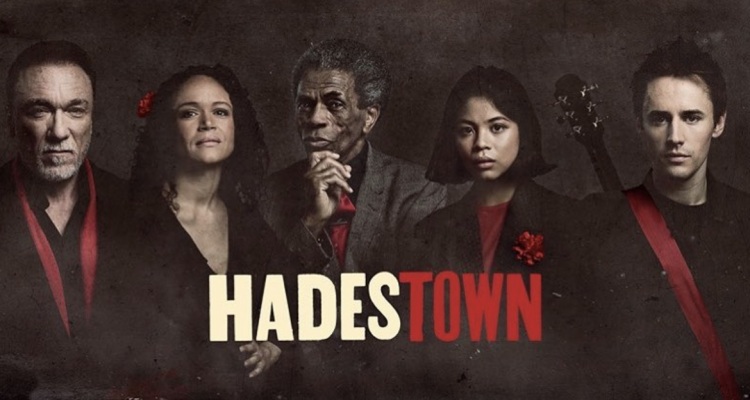Musicals and plays that are more off the beaten path than others have always held a special place in my heart, and Rachel Chavkin and Anaïs Mitchell’s “Hadestown” has firmly cemented itself as a forever favorite of mine. “Hadestown” is a musical rendition of the famous Greek tragedy of the lovers Orpheus and Eurydice, and the intertwining of their stories with Hades, God of the Underworld, and his wife Persephone.
As the legend goes, when Eurydice goes to the Underworld and is unable to back, Orpheus attempts to rescue her. He is then told by Hades that as long as he doesn’t turn around to make sure she’s following him out, the two of them are allowed to leave of their own free will. At the very end of the path, however, Orpheus turns, and loses Eurydice at the last moment, sending her back to the Underworld forever. “It’s a sad song, it’s a sad tale, it’s a tragedy,” the entire company sings at the beginning, but you can’t help but hope throughout the duration of this show that Broadway has managed to turn this age-old ending into something more positive. No such luck.
This show has been in the works for a number of years, beginning as a concept album in 2010 by singer-songwriter Anaïs Mitchell, developing into an off-Broadway show in 2016 and now becoming a full-fledged Broadway production as of March 2019 under director Rachel Chavkin, who previously directed Dave Malloy’s “Natasha, Pierre & the Great Comet of 1812.” The life and energy of this production, with the music reminiscent of New Orleans jazz and classic folk, reflects the passion and soul put into this story with blinding clarity.
The Walter Kerr Theater, where “Hadestown” is being housed during its run, is a small, intimate affair; the doors where one enters from the sidewalk of New York City lead directly into the house of the theater with no lobby to act as an intermediary. Even seated as I was towards the back of the orchestra section on the lower level, I could see every part of the stage and every person on it, and as Kay Trinidad, who played one of the three Fates, said to those of us gathered at the stage door afterwards, “You guys were right there with us the whole time.”
With shows I’ve gone to see before, the initial interest for me lies in how connected I feel with the cast recording ahead of time: which songs I love, which I’m interested to see how they’ll be choreographed, learning about the cast and whose voice I like the most, etc. With “Hadestown,” there’s only an off-Broadway recording from two years ago, with just two of those same actors (Amber Gray as Persephone and Patrick Page as Hades) who have continued on to this official Broadway cast. I therefore went into this performance with no knowledge of what this new cast sounded like nor if the story had shifted at all from that previous recording.
The fact that these details didn’t even matter to me is a testament to Chavkin’s direction and story development, and the phenomenal talent of this new cast, the members of which are instantly and easily likeable. Eva Noblezada, who has previously played prominent characters in Broadway and West End productions of “Miss Saigon” and “Les Misérables,” brings palpable strength, humor and vulnerability to the role of Eurydice that makes her a standout from her first to last moment on stage. Her tomboyish, worldly personality gives way to beautifully emotional moments, revealing the complexity of her character as the story progresses. She is then superbly contrasted with the nervously earnest Orpheus, who is portrayed in this same genuine by Reeve Carney. He softens her hardened exterior with his gorgeous, atmospheric tenor voice and hopeful naivete, and she grounds him with the strength of her independent spirit.
This younger couple finding their footing in their new relationship is then juxtaposed with the wearied marriage between Hades (Patrick Page) and Persephone (Amber Gray), who are individual forces of nature. Gray, who, like Chavkin, was also previously involved in “Great Comet,” was someone I was looking forward to seeing again, and her Persephone was a clear highlight for everyone in the audience. As the one responsible for bringing spring back to the world every year, Persephone appears in bursts of joyful energy, humor and drunken revelry, and Gray’s playful, gravelly voice in addition to these moments made her the obvious comic relief of the show. Page’s Hades is the darkness to her light; the most defining aspect of his performance is his voice, which without exaggeration is the deepest I have ever heard in my life. A girl at the stage door likened him to “a murderous Leonard Cohen,” which comes pretty close to describing the low, scraping sound he can emit; many of his vocal parts drew audible gasps from the audience (with good reason).
It’s early days for this production, but it only took one performance of “Hadestown” to reassure me of my love for its music and story. I’m excited on behalf of all the future audiences who get to see this musical, and am even more excited for when, if the American Theater Wing does its job right, it gets all the Tony nominations and wins it deserves.


Leave a Reply